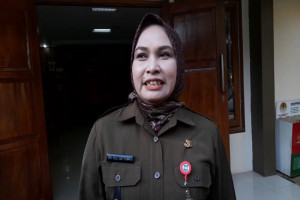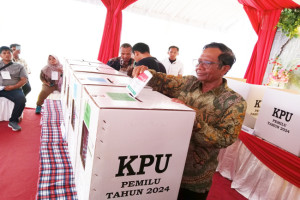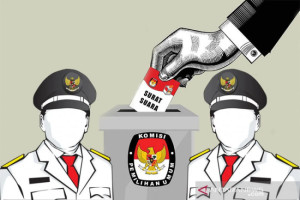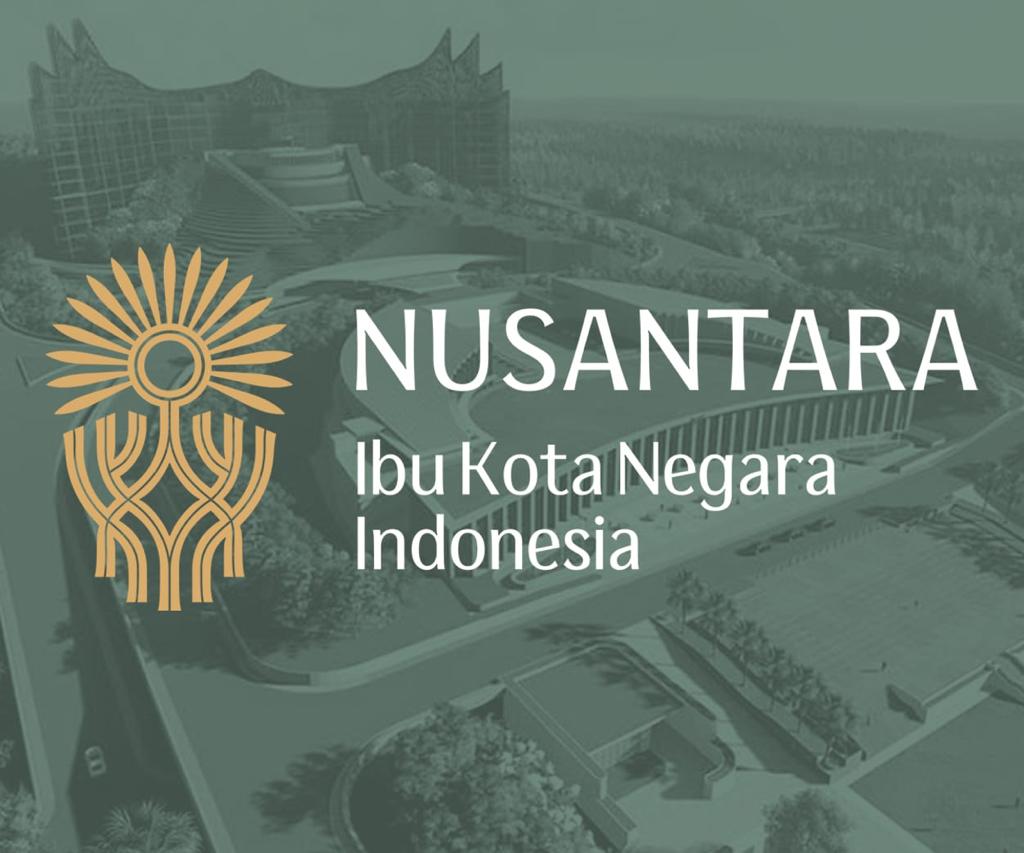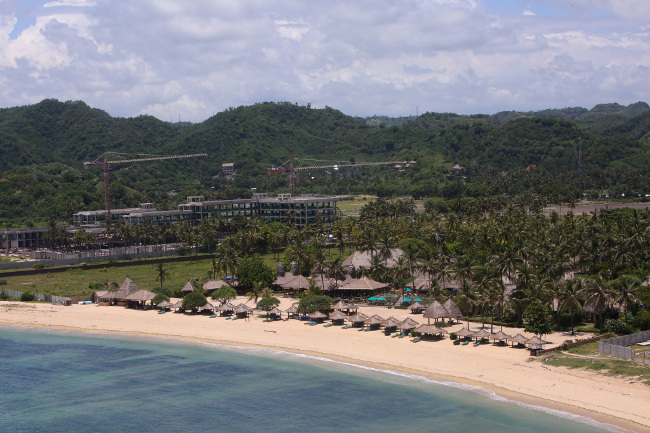
Jakarta, GATRAReview.com - Despite a constant indexing breakthrough, Indonesia's business establishment process is blamed undesirable. It's just even so if seen from the upcoming economic challenges. Reforms in bureaucracy and public services are due to cope with industrial revolution 4.0.
“Complicated process adds up to the length and increases the price. It's a recurring problem that I heard from the foreign investors coming to Indonesia,” said President Joko Widodo when giving an opening speech at the XXIII Congress of Indonesian Notary Association at Bogor Palace, last April.
Complicated permit issuance has cast a shadow over domestic industry sector. Although the govt has done several reforms, it cannot prevent wrong practices. Complaints keep on coming over business establishment in the country.
Jokowi's bitter comment was not the first time around. Complaints concerning the difficulty in domestic business establishment are often spoken by capital-owners planning to invest in Indonesia. According to Jokowi, in the beginning, most investors were happy and confident. Yet, once entering license issuance, their hope dwindled.
In fact, there has been an initiative to encourage business establishment. Head of Indonesian Entrepreneurs Associations (Apindo), Hariyadi B. Sukamdani, agreed that industrial business permit is quick and easy to get. However, it applies only to basic permits, like the business license and the tax identification number (NPWP). Hariyadi then stated that slow processing time happened in most regions, caused by some sectoral conflicts.
Findings on Obstacles
Prevalent among upper middle-sized business establishments, the deterrents also disturbed smaller enterprises. Based on a monitoring by Indonesian Ombudsman, small business owners have been discriminated against bigger enterprise in a form of illegal levies.
The Ombudsman Commission has found at least 14 problems in doing business in 2017. The findings, aimed at monitoring and assuring a friendly business environment, were gathered in Palembang, Surabaya and Makassar. “There were 4 problems in 2016 and the number rose to 10 in 2017,” said an Ombudsman member, Adrianus Meliala.
He said, legal certainty and slowness in public services become the primary problem for most business owners in Indonesia. According to him, there is still a high number of public complaints related to industry sector, reaching up to 1,451 reports in 2017. The number signals, according to Adrianus, a persistence in mal-administired public services in the industry sector.
Other survey from 2018 Online Permits Data of World Bank shows that Indonesia currently sits in the 73rd position globally in terms of ease of doing business. A research by the World Bank also shows that it takes 20 days to get a business permit in Indonesia, longer than that of China (9 days), Malaysia (13 days), Thailand (5 days), Vietnam (17 days), and Singapore (1.5 days). This World Bank's survey was done in big cities, including Jakarta and Surabaya, where local governments have done numerous breakthrough policies.
It's in contrast with local investment climate where everything is more or less condusive. The ease of doing business has become the measure for a country's progress since the ease of establishing business with short period of permit issuance increase the chance for investment. The govt actually has done several breakthroughs in permit issuance through One Single Submission (OSS) system, an integrated service under the Investment Coordination Committee (BKPM). During this year, it has released a new, version 1.1, of OSS. The BPKM also establish a consulting services, with face-to-face and online methods.
Head of BPKM Thomas Lembong said that his institution will focus on pacing up the service queue in the integrated services, called PTSP, in BKPM. “We see a growing number of OSS users. Yet, there are still a lot of works, especially on the development of OSS system to serve business owners,” said Tom Lembong.
With the online services, permit issuance is expected to be easier and quicker. Business owners can also directly consult with related institutions to fix a particular problem. In fact, there was a sudden flow of interests, overburdening the platform and becoming a basis of current limit of 300 requests per day.
Centre of Public Services
Efforts to level up the ease of doing business has been done, although the readiness of the supporting environment lags some steps behind. It causes a low efficiency in public services.
Moreover, Indonesia is required to score more than 80, and rank at least in the 35th position, in government effectiveness index (IEP) to be categorized as a high-income country. The World Bank in 2018 has noted that Indonesia ranks in the 95th position – although it has improved from last year, when Indonesia was ranked number 98.
Government Effectiveness Index is measured by the World Bank through some indicators like the quality of public services, autonomy from political pressure, policy drafts, as well as the credibility of government's commitment. Upon a thorough evaluation by the World Bank, Indonesia is left behind by Asian countries like Vietnam, India, Philippine, and Malaysia.
Now, what are the formula by the Jokowi and Ma'ruf government? To keep up on the government effectiveness, Indonesia will be focusing on the Bureaucreatic Reforms during the next four or five years, establishing a world-class governance model. Although there has been much progress, nearly 4.35 civil servants have yet to achieve the servants-related indicators stated in the Middle-term National Development Program (RPJMN) of 2015-2019.
The Ministry of Administrative and Bureaucratic Reforms (PAN & RB) has prioritized 6 main events in 2019 to achieve the target in national bureaucratic reforms. The Ministry also encouraging the reforms in all governmental institutions, by replacing the Ministerial Act No. 14, 2014 on the bureaucratic reforms with the new Ministerial Acts No. 30, 2018.-
To improve the quality of public services, the minister of bureaucratic reforms, Syfruddin, has asked all regions in Indonesia to establish a Center for Public Services (named as 'Mal Pelayanan Publik', MPP). According to Syafruddin, MPP can assist the citizens, especially those with little or no time, with a quick and efficient service.
During this year, at least 17 MPPs have been established in Indonesia, commencing a target for 35 more MPPs by next year, which is to increase the effeciencey, effectiveness and comfort on public services. “Improvements in the quality of public services and bureaucratic administrations is measured, among other things, based on the Government Effectiveness Index. Indonesia aims to be within global top 10 by the end of 2034,” said the minister.



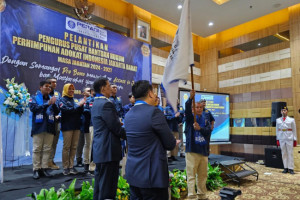
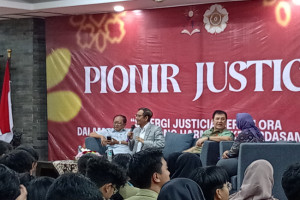
_thumb.jpg)

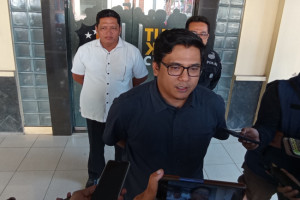
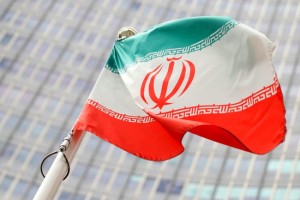
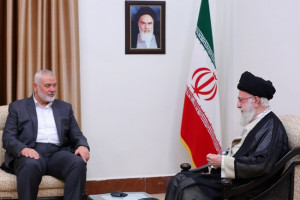
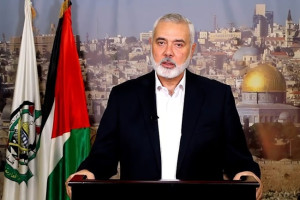
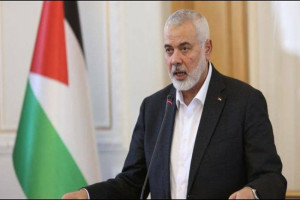

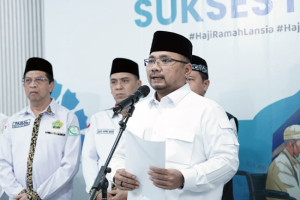
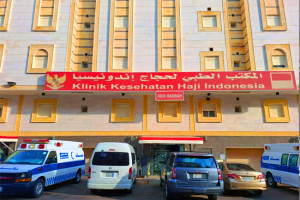
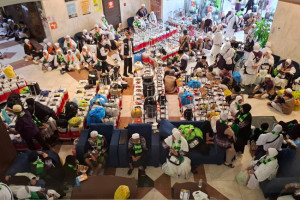
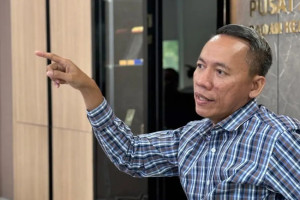
_(1)_11zon1_thumb.jpg)
